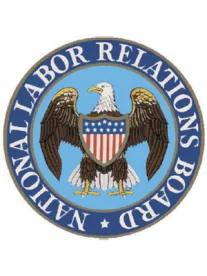On July 10, 2018, the National Labor Relations Board (“NLRB” or “Board”) announced the start of a new pilot program to increase participation in its Alternative Dispute Resolution (“ADR”) program. Established in 2005, the Board’s ADR program provides free mediation services to parties who wish to attempt to settle cases that are pending before the Board through the use of a mediator from the Federal Mediation and Conciliation Service or the ADR program director. It is the Board’s position that the ADR program provides parties with greater control over their cases and more “creative, flexible, and customized settlements,” and will save the parties time and money. A settlement is reached in approximately 60% of the cases that participate in the ADR program, and the Board has always approved the settlement reached between the parties. However, regardless of the purported benefits of the ADR program and its “proven track record,” the Board’s Office of the General Counsel stated in its October 15, 2015 Memorandum OM 16-02 that “many cases that are excellent candidates for the program are not brought to the program by counsel for respondent or the General Counsel.”
Under the new pilot program, the Board’s Office of the Executive Secretary will “proactively engage” parties “to determine whether their cases are appropriate for inclusion in the ADR program.” (Of course, parties are still able to request the ability to participate in the program on their own.) However, the Board’s announcement regarding the pilot program provides no further details on how the Office of the Executive Secretary will decide if a case is suitable for the ADR program.
Aspects of the ADR program include:
- The processing of the case before the Board will be stayed for 30 days from the first meeting with the mediator or until a settlement is reached, whichever happens first (cases may be stayed for up to 60 days upon a showing of good cause);
- All filing deadlines will also be stayed;
- Settlement conferences may occur in-person, but conferences via telephone or videoconferences are also permitted;
- Parties have the opportunity to submit confidential settlement memoranda to the mediator;
- Participation in the program is voluntary and can be withdrawn at any time;
- Conversations between the mediator and parties are confidential; and
- The mediator is not permitted to impose a settlement on the parties.
Because the overwhelming majority of unfair labor practice charges are dismissed, withdrawn, or settled at some point along the way before reaching the Board, it is unlikely that the pilot program will result in a dramatic decrease in Board litigation overall. However, if the pilot program results in the increased use of the ADR program, and the program continues to have a high success rate, cases pending before the Board may begin to be resolved in a less expensive and quicker manner.



 />i
/>i
